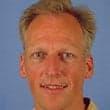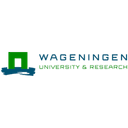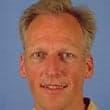This course is part of multiple programs. Learn more.
This advanced course explores the transition from linear to circular economy models through an interdisciplinary lens. Students learn to analyze complex circular systems using systems thinking, life cycle assessment, and agent-based modeling. The curriculum covers sustainable supply chains, transition management, engineering solutions, and environmental impact assessment. Through theoretical frameworks and practical case studies, participants develop skills to design and implement circular solutions across various sectors.
4.5
(11 ratings)
19,861 already enrolled
Instructors:
English
English
What you'll learn
Analyze and develop complex circular systems using systems thinking
Assess environmental impact using Life Cycle Assessment methods
Apply agent-based modeling to circular economy challenges
Design strategies for transitioning from linear to circular models
Implement sustainable business practices in circular systems
Formulate improvements for circular design and implementation
Skills you'll gain
This course includes:
PreRecorded video
Graded assignments, Exams
Access on Mobile, Tablet, Desktop
Limited Access access
Shareable certificate
Closed caption
Get a Completion Certificate
Share your certificate with prospective employers and your professional network on LinkedIn.
Created by
Provided by

Top companies offer this course to their employees
Top companies provide this course to enhance their employees' skills, ensuring they excel in handling complex projects and drive organizational success.





There are 6 modules in this course
The course provides a comprehensive understanding of circular economy principles and practices. Through six modules, students explore the transition from linear to circular systems, circular systems engineering, transition management, life cycle assessment, and agent-based modeling. The curriculum emphasizes practical application through case studies and focuses on developing solutions for real-world sustainability challenges. Special attention is given to systems thinking and interdisciplinary approaches in implementing circular economy initiatives.
Introduction to the Circular Economy
Module 1
Circular Systems Engineering
Module 2
Transition Management
Module 3
Life Cycle Assessment (LCA)
Module 4
Agent Based Modelling (ABM)
Module 5
Case Study
Module 6
Fee Structure
Individual course purchase is not available - to enroll in this course with a certificate, you need to purchase the complete Professional Certificate Course. For enrollment and detailed fee structure, visit the following: Economics and Policies for a Circular Bio-Economy, Business and Operations for a Circular Bio-Economy
Payment options
Financial Aid
Instructors

10 Courses
Pioneering Scholar in Sustainable Fashion and Circular Economy
Dr. Kim Poldner serves as Professor of Circular Business at The Hague University of Applied Sciences and holds the endowed professorship in Regional and Circular Economic Development at the University of Groningen since January 2024. Her academic journey includes a PhD from the University of St. Gallen, Switzerland, focusing on sustainable entrepreneurship in the textile industry. Before entering academia, she established herself as a pioneer in sustainable fashion by founding the Netherlands' first eco-fashion store in 2005 and launching the Eco Fashion World platform. At Wageningen University & Research, she founded the Circular Fashion Lab, which brings together scientists and designers to create innovative materials and redefine textile supply chains. Her research spans circular business models, sustainability transitions, and regenerative leadership, with her work appearing in prestigious journals including Business & Society and the Journal of Cleaner Production. Her practical experience includes curating a green wardrobe exhibition "Wear I Am" in 2017, featuring her upcycled wedding dress. She advocates for transforming consumer behavior and education around textiles, promoting digital fashion as a sustainable alternative, and emphasizing that the transition to a circular economy requires not just technological innovation but a fundamental shift in values.

16 Courses
Leading Expert in Strategic Management and Sustainable Business Transitions
Dr. Emiel F.M. Wubben serves as Associate Professor of Strategic Management at Wageningen University and Research Fellow of WASS, bringing extensive expertise in business transitions toward sustainable and circular economies. After earning his doctorate in Economics from the Tinbergen Institute at Erasmus University Rotterdam in 1993, he served as Assistant Professor at Rotterdam School of Management until 2001 before joining Wageningen University
Testimonials
Testimonials and success stories are a testament to the quality of this program and its impact on your career and learning journey. Be the first to help others make an informed decision by sharing your review of the course.
Frequently asked questions
Below are some of the most commonly asked questions about this course. We aim to provide clear and concise answers to help you better understand the course content, structure, and any other relevant information. If you have any additional questions or if your question is not listed here, please don't hesitate to reach out to our support team for further assistance.



